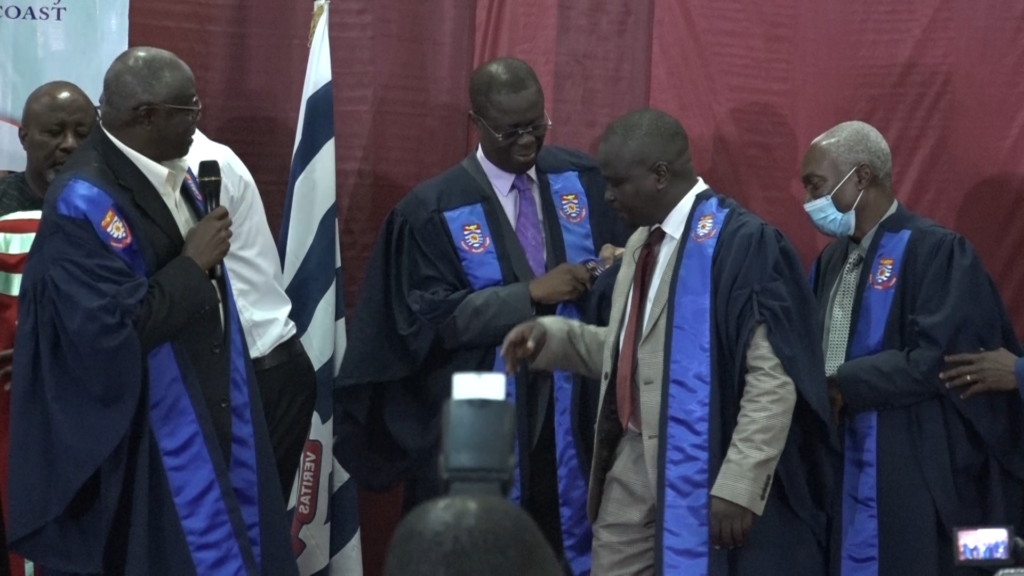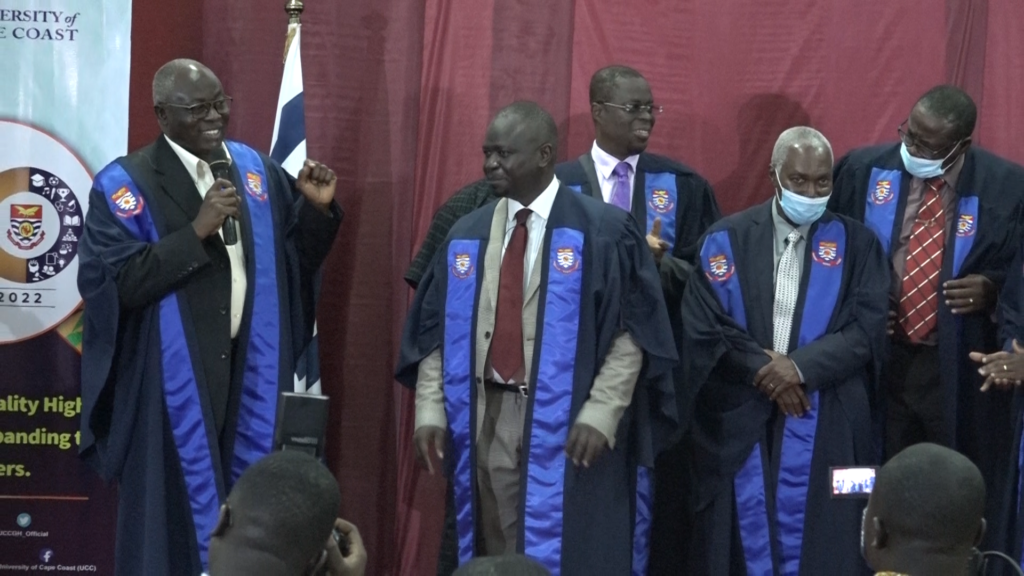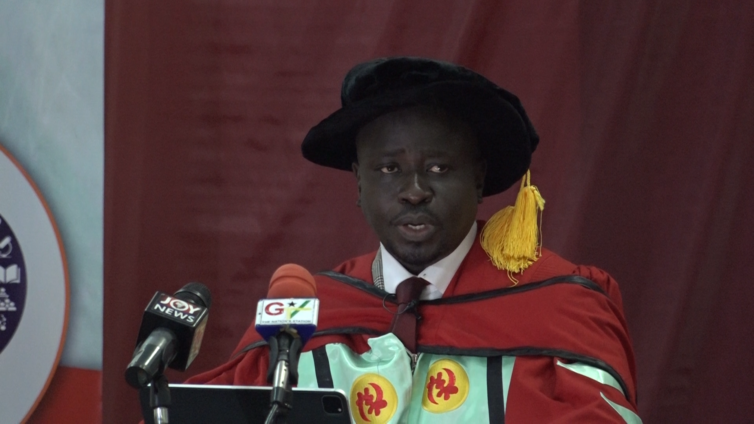The government statistician, Prof. Samuel Kobina Annim, has bemoaned the price variation of commodities at the various market centres across the country.
According to him, imported rice in 5 outlets in Cape Coast, for instance, is in excess of 100%, a situation he says is unacceptable and calls for urgent steps to address it.
Speaking at his inaugural lecture at the University of Cape Coast, the economic professor indicated that the price levels of imported rice based on the data from the 54 outlets over a three-time period: 2018, during the COVID-19 pandemic, and in 2021: the Russian invasion of Ukraine, reveal high price variation.
“Look at the disparities in prices across these markets."
"If we want to resolve the inflation rate in Ghana, it’s not a monetary policy argument, and thankfully, the Governor of the Bank of Ghana did indicate that we should begin to think about the supply side,” he stated.
He added that data on stocks of grains is yet to be compiled, but it is necessary because food contributes 50% of the country’s overall inflation disaggregation.
Prof. Annim indicated that a framework was needed to address the widening disparities and to minimize price variation at the various market outlets.

He further stated that, “Households have been deprived of information on prices.
"Indeed, if you take the data from Cape Coast outlets alone, 5 of them, you can see a variation in excess of 100%. So, when you are going to the market, it’s only based on the information that you have. This is the state’s responsibility.”
The economic professor further suggested two ways of addressing the phenomenon.
“Consumers should have information. So, essentially, the point is, if somebody is going to buy the commodity, what is the basis for price comparison?
"In other jurisdictions, people have the opportunity to access relative prices to help them make informed decisions,” he added.
Prof. Annim says he put out the slide on price variation because, as a community, people have decided to capitalize on variations in prices in times of economic hardships.

“In 2018, when we didn’t have the pandemic and the Russian invasion, prices were relatively stable across the 54 outlets for imported rice, but we can all see what has been happening during the COVID-19 pandemic and the Russia-Ukraine war,” he added.
The inaugural lecture on “Data-Policy Transitions: Perspectives of Economic Variables” is the second in a three-part series that commenced with a lecture on “Conceptualisation of National Policies: Issues of Capacity and Practice” at Central University in April and will conclude with a lecture on “Estimations and National Policies: Perspectives of Economic Variables”.

Professor Annim’s research achievements have mainly been in microfinance, with the central aim of investigating the impact of the development paradigm which received much attention in the first decade of the 21st Century. While the impact has been proven scientifically to an extent, Prof. Annim demonstrated the conditionalities associated with the impact of microfinance on poverty reduction.
In the course of the lecture, he reminded policymakers of the need to rethink the effects of situating the Microfinance and Small Loans Centre at the Office of the President, and implement national database for all vulnerable microfinance clients. He also urged microfinance practitioners and funders to focus on the packaging of financial products (i.e., savings, credit, remittances and microinsurance).
In light of his background as a micro-econometrician working with national datasets across the globe, Prof. Annim prompted researchers and policymakers to collaboratively work to improve the use of data for the realization of the outcomes and impact of policies. Prof. Annim reviewed the Data Engagement Landscape in Ghana; shared his contemplations as a Statistical Data Producer, User, Advocate and Custodian; and introduced the Data Integrity Framework.
Latest Stories
-
Six houses belonging to herdsmen torched in Gomoa Amenfi over farm dispute
1 hour -
Int’l. Islamic Youth League, African Youth Devt. Centre supports Muslim community during salah celebrations
2 hours -
Kumasi fire: A/R Minister halts creation of new lorry terminal after fire
2 hours -
Vanuatu Trade Commissioner to Ghana Amb. Prof Hugh Keku Aryee wins ‘Best in AI Innovation’ award
2 hours -
Anlo-Afiadenyigba Youth Council congratulates Wisdom Seade on Keta MCE nomination
2 hours -
Gov’t undertakes initiative to prevent conflicts in Volta Region – James Gunu
3 hours -
Suhum Children’s Hospital in distress; ‘Love Without Walls’ to the rescue
3 hours -
The death of a legend of legends – Teddy Osei of Osibisa
3 hours -
Ja Rule tours National Museum ahead of Nuaso school commissioning
3 hours -
Agotime-Kpetoe market women protest NDC’s failure to appoint female DCE
3 hours -
Anas Aremeyaw Anas’ investigative film, “Invisible Hands” streams on Delta Airlines
3 hours -
Ghana Month series: Exploring the evolution of Ghana’s currency
3 hours -
Howo Max Tractor launches in Ghana
3 hours -
Stakeholders meet in Keta to address illegal fishing practices in Volta region
3 hours -
Mustapha Gbande applauds Mahama’s commitment to completing Agenda 111 hospitals
4 hours

